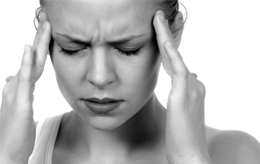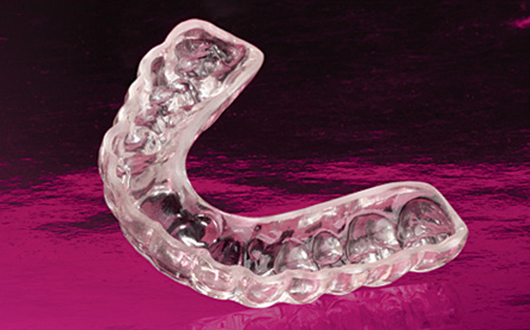 What's Bruxism?Bruxism, or more commonly know as teeth grinding, is quite common and affects about one in four Chinese, Some people don't even realize they have it because it happens naturally or at night while they sleep. People usually grind their teeth to relieve stress, anxiety, or frustration. It shouldn't be taken lightly because it can cause a lot of damage to your teeth.
What's Bruxism?Bruxism, or more commonly know as teeth grinding, is quite common and affects about one in four Chinese, Some people don't even realize they have it because it happens naturally or at night while they sleep. People usually grind their teeth to relieve stress, anxiety, or frustration. It shouldn't be taken lightly because it can cause a lot of damage to your teeth.
Effects of Bruxism


Grinding and clenching your teeth can cause jaw pain and headaches, aside from damaging your teeth. It can also affect your partner when he or she hears the constant grinding of your teeth at night. By grinding your teeth, you wear down their enamel and structure. This is the leading cause of tooth trauma and a very significant cause for tooth loss and receding gums.
People grind their teeth for a variety of reasons. Doctors believe that it is because of stress. Dentists say that it happens because one's teeth are not properly aligned with each other. Whatever the cause treatment should not be delayed.
Indications of Bruxism
- Intense clenching of teeth enough to wake up somebody.
- Flattened, wom down, and chipped teeth.
- Wom teeth enamels
- Sensitive teeth (extensive pain in their gums when their teeth are subjected to something very cold or very hot.)
- Pain and tightness in jaws and its muscles.
- Instances of earaches (when the jaws move constantly and involuntarily the muscle that connects to the ear suffers as well).
- Headaches.
- Facial pains.
- Damaged cheek tissue.
Treatment for Bruxism in Aurora Dental
 To physically reduce the pressure on your teeth from grinding, a night guard or occlusal guard can be worn. Your dentist will fit you with a specially molded night guard to wear while you sleep. It is usually worn on one jaw and serves as a protective barrier between your teeth. It prevents friction from damaging your teeth at night. A professional night guard, made by a dentist, is very important because it ensures a proper fit to your specific set of teeth.
To physically reduce the pressure on your teeth from grinding, a night guard or occlusal guard can be worn. Your dentist will fit you with a specially molded night guard to wear while you sleep. It is usually worn on one jaw and serves as a protective barrier between your teeth. It prevents friction from damaging your teeth at night. A professional night guard, made by a dentist, is very important because it ensures a proper fit to your specific set of teeth.
Since Bruxism is associated with trouble sleeping, there are a few things you can do to relieve stress before you sleep. Taking walks or warm baths before bed can relax your muscles and possibly allow you to sleep easier, reducing the amount you grind your teeth.
 To physically reduce the pressure on your teeth from grinding, a night guard or occlusal guard can be worn. Your dentist will fit you with a specially molded night guard to wear while you sleep. It is usually worn on one jaw and serves as a protective barrier between your teeth. It prevents friction from damaging your teeth at night. A professional night guard, made by a dentist, is very important because it ensures a proper fit to your specific set of teeth.
To physically reduce the pressure on your teeth from grinding, a night guard or occlusal guard can be worn. Your dentist will fit you with a specially molded night guard to wear while you sleep. It is usually worn on one jaw and serves as a protective barrier between your teeth. It prevents friction from damaging your teeth at night. A professional night guard, made by a dentist, is very important because it ensures a proper fit to your specific set of teeth.Since Bruxism is associated with trouble sleeping, there are a few things you can do to relieve stress before you sleep. Taking walks or warm baths before bed can relax your muscles and possibly allow you to sleep easier, reducing the amount you grind your teeth.
!To book in your bruxism treatment please call us on 18681366699

